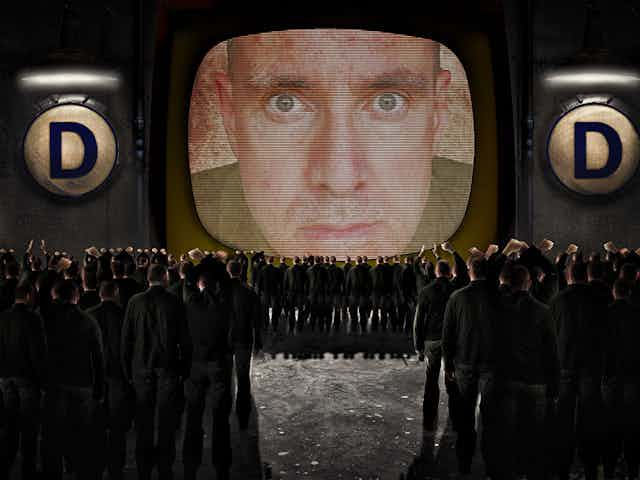If you’re thinking about planning a trip to Russia for the Winter Olympic Games in February next year, prepare to have every aspect of your communications monitored under “the most invasive and systematic spying and surveillance in the history of the Games”, according to a report in the Guardian this week.
Perhaps the truly newsworthy aspect of Russia’s plans for extensive electronic surveillance during the 2014 Winter Olympics in Sochi is just how much we know about it.
Part of the mystique of state surveillance has long been its covert aspect, but things are starting to change.
Thanks in part to a rash of recent leaks and in part to growing awareness of the capabilities of digital technology, we are now learning to live with what might be described as “the spectacle of surveillance”: the public coverage of just how powerful new technologies are at tracking, sorting, and targeting the populace.
Wave hello to Big Brother
We are becoming increasingly savvy about the fact that as our communicative lives continue to migrate onto various digital platforms they are subject to increasingly comprehensive forms of monitoring by both private companies and the state.
In the post-9/11, post-Boston-marathon-bombing, post-Westgate-Mall-attack era, it is hard to imagine that any nation hosting the Olympic Games would not be mobilising the full force of its surveillance apparatus in the name of security.

Indeed, security capacity is a key element of any country’s bid to host the Games. Nor is it likely that Russia’s electronic monitoring capability is any more developed than those in the US or the UK (and elsewhere).
However, the coverage of Russian Olympic surveillance drives home the increasingly pressing question of accountability.
For years, in the West, there was a close cultural association between Moscow and Big Brother – not the game show, but the figure of oppressive, political surveillance.
That association lingers in the coverage of surveillance at the Sochi games. We know that the US, the UK, and so on, have developed similar surveillance powers, but a familiar Orwellian shiver is triggered by the story of a former KGB officer wielding them.
This reaction should remind us of an important principle for the digital era: state surveillance regimes should be crafted so that they are “leadership neutral”. That is, they must incorporate accountability provisions (including record-keeping that will eventually be made public about who is being monitored and why) to ensure that surveillance powers are not abused.
Increasingly we are being asked to submit to surveillance in the name of security with the admonition that we have nothing to worry about if we are not doing anything wrong. As if we have all agreed precisely on what “wrong” means.
In the shadows
The reason the spectre of surveillance in Putin-era Russia looms large is because it reveals how the notion of “wrong” can so easily expand.
Will the same tools that are used to protect athletes and spectators from the threat of physical harm be used to prosecute them for violations of Russia’s controversial law banning “propaganda of nontraditional sexual relations to minors” – and would speaking out publicly in support of gay rights, for example, constitute such propaganda?

Similarly, at what point does political opposition turn into a so-called “security threat” – and who gets to decide?
Given President Putin’s reputation for aggressively going after political opponents and the legacy of the West’s association of Big Brother and (Soviet-era) Russia, it is easy to raise concerns about the limits of surveillance at the Sochi Games.
But it is time to ask similar questions about the role of new forms of surveillance more generally.
Even in countries that see themselves as functioning democracies, the accountability provisions governing the use of state surveillance capabilities need to keep pace with the temptations they offer: the ease of expanding their reach beyond their stated purpose of securing the populace from harm to life, limb and property.
As surveillance becomes more spectacular, it must also become more transparent. The danger is, as US Senator Frank Church put it in an interview in the wake of Nixon-era abuses of state surveillance, that:
if a dictator ever took charge […] the technological capacity that the intelligence community has given the government could enable it to impose total tyranny, and there would be no way to fight back, because the most careful effort to combine together in resistance to the government, no matter how privately it was done, is within the reach of the government to know. Such is the capability of this technology […] I don’t want to see this country ever go across the bridge.
The struggle to avoid that bridge is an ongoing one in the digital era.

